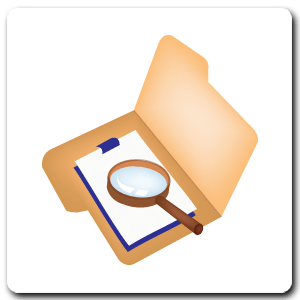Forensic accountancy is about the integration of accounting, information technology and investigation skills. In this article we look at what a forensic accountant does, where they can work and how to become one.
What is a forensic accountant?
Forensic accountants investigate commercial fraud, divorce and personal injury cases. They are employed by a range of companies, from public practice accountancy firms in order to conduct investigations into fraud and other financial misrepresentation.
Forensic accountants analyse, interpret, and present complex financial information in order to enable lawyers, insurance companies and other clients to resolve disputes.
What does a forensic accountant do?
A forensic accountant carries out investigations to uncover information, such as irregularities in financial documents and reports. They will then work out the exact losses and trace and recover illegitimate funds.
As a forensic accountant you could be investigating financial discrepancies such as fraudulent activity, misconduct or financial misrepresentation. You will analyse financial information for a range of clients, you could be enabling lawyers to prosecute criminals or for insurance companies to resolve disputes.
More specifically, you could be creating and manipulating spreadsheets, undertaking interviews to uncover and verify information or even attending court to give an expert testimony. You could even travel abroad to conduct your investigations. Whatever your duties, it is clear that forensic accountancy is a really interesting area of finance.
Where can a forensic accountant work?
Despite what many would like you to believe (or what you see in Line of Duty), forensic accountants don’t spend all of their time uncovering criminal activity. Some will, and some of your time will be taken up with those sorts of duties, but there are many other places a forensic accountant can work.
Some forensic accountants work for insurance companies where they can be critical in resolving insurance claims and helping insurers and claimants to agree a settlement.
Since the 2008 financial crash there has been a greater demand for accountability in both public and private sectors which means that there is a demand for forensic accountants in companies to minimise the risk of financial problems.
Other areas of work for a forensic accountant could include commercial litigation, investigating professional negligence and loss of profit calculations. You could find yourself working for a risk management firm by analysing changes in law, exchange rates and more and their influence on profits and operations, or working for a law firm as a consultant for financial issues.
Alternatively, some forensic accountants find themselves working for government departments, gathering evidence and building financial profiles of suspects.
How much do forensic accountants make?
To become a forensic accountant you need to train to be an accountant, and starting salaries for trainees can vary between firms. However, the average salary for a trainee accountant is around £24,000 rising up to about £28,000 a year.
Once you have qualified, you can expect to earn an average of around £40,000 which can rise up to almost £70,000. Of course, depending on which company you work you may also have access to bonuses, profit-sharing schemes and a car allowance.
How to become a forensic accountant
To become a forensic accountant you need to train to become an accountant, this can be done through either the ACA or ACCA. These qualifications will enable you to get your first role in accountancy and to gain hands on experience.
You will then need to specialise in forensics. You can do this by applying for a role in Financial Analysis or Auditing or by undertaking a postgraduate certificate or degree in forensic accountancy.
The Institute of Certified Forensic Accountants is a global professional body for forensic accounting. You can find out more about them and the courses they offer here .




